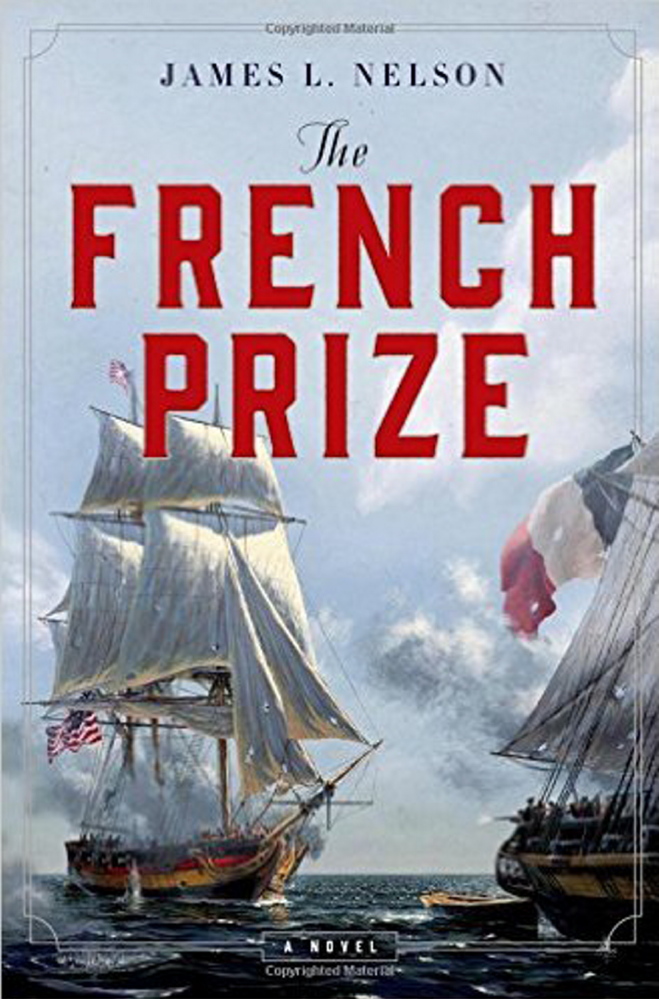MEMORIES OF SHUCKING PEAS
By Mitch Littlefield
North Country Press, 2015
181 pages, $15.95
German philosopher Walter Benjamin (1892-1940) once wrote: “The art of storytelling is reaching its end because the epic side of truth, wisdom, is dying out.” Fortunately, Bangor storyteller Mitch Littlefield proves that Benjamin was wrong.
“Memories Of Shucking Peas” is Littlefield’s first book, a wise and witty collection of 25 short memories recalled from his growing up the 1960s and ’70s in a large farm family in the Belfast area. Littlefield is not only an excellent storyteller; he is very funny, too.
These stories bring to life the family farm back in the days when Maine had lots of farms and those farms actually could support a large family with both sustenance and income. Littlefield was born in 1956, and the stories come from those early years as a farm kid, playing and working, experiencing adventures most kids today have no clue about.
Most of his stories are hilarious, a few are sensitive and poignant, but it’s his sense of humor that wins here.
“Saturday Night Baked Beans” tells why eating homemade baked beans and sauerkraut for dinner results in explosive, unfragrant entertainment. In “Watch Out,” his Aunt Edie outsmarts “our inflamed colon game warden” with snappy, unmatched repartee.
Best, and funniest, is “Donkey Daze,” a knee-slapper about the family’s well-endowed and easily excited donkey named Ed Muskie, and how Ed chased off door-to-door missionaries.
Other stories describe how to make sauerkraut and homemade coffee brandy, why Belfast was the “chicken capital of the world,” the importance of proper telephone etiquette on a party line, why the beauty contest crowning of the Broiler Queen made his mom and dad “so happy they were actually nice to each other,” and his clever and pungent thoughts on PETA and other out-of-state elitists.
THE FRENCH PRIZE
By James L. Nelson
Thomas Dunne Books, 2015
336 pages, $26.99
Few Maine authors handle historical fiction, especially 18th- and 19th-century naval activity, as well as Harpswell’s James Nelson.
“The French Prize” is Nelson’s 12th novel and is a spinoff from his five-volume “Revolution at Sea” series of naval warfare during the American Revolution.
In that series, Nelson’s main character is Capt. Issac Biddlecomb, an American naval war hero and wealthy merchant. It is the 1790s now, and the revolution is long over; but Issac’s son, Jack, also a sea captain, finds himself unwittingly about to start a war with France.
Among the many strengths of Nelson’s fiction, in addition to clever, complex plot lines and sharp characters, is his keen ability to accurately portray the politics, customs and culture of an era. Here, he correctly illustrates American political intrigue and the tension between the U.S. and France (which ultimately led to the Quasi-War with France in 1798-1800).
Jack is the new captain of a merchant ship bound from Philadelphia to Barbados with a general cargo and two curious passengers. At the last minute, his merchant vessel is armed with six cannons; and one of the passengers, the blowhard Mr. Frost, is to train the crew in gunnery. The other passenger is an arrogant dandy with certain surprisingly specialized skills – especially marksmanship.
Apparently, Jack is expected to fight French privateers thought to be roaming the Caribbean, taking American ships as prizes. What Jack doesn’t know, however, is that Mr. Frost has other, more perilous and deadly orders that will cost men their lives. He is also unaware that a French warship is waiting for him at sea, and the French captain has mysterious orders of his own.
Jack and the Frenchman are both pawns in a dangerous game and are on a course neither of them wants.
Bill Bushnell lives and writes in Harpswell.
Send questions/comments to the editors.



